The truth is that most modern operating systems are excellent at what they do. Perhaps this universally high quality is attributable, in part, to the fact that they all contain a little bit of UNIX in their DNA. Nevertheless, there are enough differences between them that it’s easy to dismiss a couple right from the start.
Android or Linux: Making the right choice
The secret to choosing the best operating system for any given situation is to first realize that there is no best operating system for all situations; the ravings of fans are – depending on context – just as valid as the complaints of detractors.
First to be eliminated are offerings from Microsoft and Apple. That’s not a reflection of their quality. But most developers will find that their licensing and hardware requirements are prohibitively restrictive, especially when deciding to use for professional devices.
What remains is Android or any of the hundreds of permutations of Linux.
The popular choice
Why not just go with the most popular choice? Would that it were that simple. There’s simply no consensus on which system is most popular. Some sources will name Linux as the most popular operating system; others just as confidently declare Android the most popular. It doesn’t help the math that some tabulations count Android as just another Linux distribution.
So, is Android Linux?
Depends on your definition. Because Android uses a Linux kernel, it’s arguably a Linux distribution.
However, the word Linux is itself actually a misnomer. In casual conversation, what is often referred to as Linux is actually the GNU operating system running on the Linux kernel. For instance, Ubuntu – popularly referred to as a Linux distribution – is actually a GNU operating system using a Linux kernel. From that perspective, it might be more accurate to describe Ubuntu as GNU/Linux. Call it that, though, and you’re likely to see blank stares.
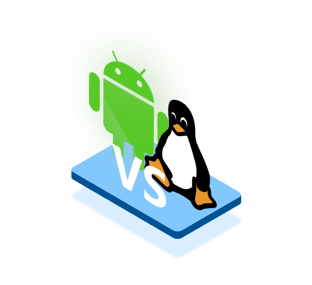
Another time-saving tip: Don’t waste any energy worrying about how to pronounce GNU. They never intend to pronounce it; it’s just a recursive acronym for “GNU’s Not UNIX”.
Android is definitely not GNU/Linux. The Android operating system does run on a Linux kernel, but unlike the majority of Linux distros, it is not based on the GNU project’s operating system. The Android operating system sprang from its own project known as AOSP. While it’s possible to argue for calling it the AOSP/Linux operating system, that might be just as awkward as saying GNU/Linux. Stick with calling it by its more familiar name, Android.
AOSP is another handy acronym for impressing people at a geek convention. It means “Android Open Source Project”. What’s important about it is that, unlike GNU/Linux distributions, Android is distributed under the Apache 2.0 license. The Apache variation of open-source licensing is similar to the GNU licensing in that it allows access to the Android operating system. However, it allows developers greater freedom to protect their intellectual property and consequentially greater opportunity to tweak the operating system to their needs.
Android’s UI and UX advantage
While journalists and statisticians continue to debate whether GNU/Linux or Android is Number One, there is little room for argument regarding the penetration of the Android operating system into everyday life. Android is the operating system found on almost 85 percent of the world’s smartphones.
While Android’s user interfaces can vary slightly, the user experience remains very close to the same across all devices. Adherence to standards is linked with Google’s stewardship of the Android operating system in defining usability standards, publishing best practices, and creating development tools. While individual Linux distributions do exercise similar controls, there is no uniform standard across the many hundreds of permutations.
Android’s UI and UX advantage is also an advantage for designers. Their work is easier when a large percentage of the potential customer base understands the basic design of a product. There is a reduction in user learning curves. This is a significant advantage over whatever flavor of Linux might be deployed in its place.
Android’s licensing advantage
The GNU license governs all GNU/Linux distributions. The GNU license, while perfectly fine, is a somewhat idealistic document. It requires developers to release their source code to the world free of charge, for all to see, use, and modify. This is a good approach for those participating in the “all software should be free” movement, but it can be problematic for anyone wishing to maintain control of their intellectual property for either competitive reasons, or security concerns.
That’s not necessarily a knock on the GNU license. GNU’s “all for one and one for all” approach is one of the strengths of the GNU/Linux community. It’s a primary reason that both Linux and Android have evolved into some of the more capable operating systems available today.
However, not all developers or investors are engaged in projects that would benefit from the open-source approach. For various reasons, developers may find it desirable or even necessary to protect their intellectual property. The GNU licensing might be prohibitive for developers with an IP-security need. A better fit for those developers is Android’s license.
The Android, or AOSP/Linux, distribution is governed by the Apache 2.0 License as created by the Apache Software Foundation. While not dissimilar in spirit from the GNU license, the Apache license allows developers greater latitude in integrating their intellectual property into an Android-derived operating system, while not demanding that they release code that they would prefer to keep proprietary.
Security issues
If you happen to be running a GNU/Linux variant, there’s no need to panic. It’s probably quite safe. When security issues arise, emergency patches will be available reasonably fast. Your technical people can then deploy the necessary updates whenever they have a free moment.
The big concern isn’t those situations where an end-user has one device running one operating system. Someone will find the time to update that device. Serious problems arise when one device becomes hundreds, thousands, or tens of thousands of devices all waiting for the same software upgrade, whether a security-related update or a new driver to accommodate hardware changes.
The Android/Apache license allows modifications to the operating system without restrictions. This openness sounds like a minor distinction. However, it changes the deployment and the update of the software. It allows emteria to integrate resources, such as a management dashboard, that makes it easier for a developer or systems administrator to manage their systems.
Couldn’t you do the same with Linux?
Well, OK, definitely maybe.
At the risk of understating the difficulties, it would require a significant buildup of resources such as secure hosting, versioning control, release management, rollback capabilities, and more in order to support your Linux deployment in a manner similar to what can be done straight out of the package with Emteria’s Android-based emteria.OS. It’s hard to justify reinventing the wheel, especially when the wheel is readily available in the form of emteria.OS.
Finally, is Android better?
So, is Android better? In most development contexts, the fast answer is yes. Of course, there will be times when one of the alternative OSes gets the nod, but those instances will usually be in the tinkering stage before any actual development. When it comes time to transition to a stable environment, to a managed environment, and one that is optimized for the IoT, then an Android-derived operating system offers several advantages.
Attention to detail — in particular the user interface and its effect on the overall user experience —results in an overall experience that will not vary wildly from build to build. Changes, when they do occur, will tend to be less jarring to the end-user.
GNU/Linux distributions run the gamut from leading-edge innovation to jaw-dropping simplicity. While there are many good things to be said about the various distributions, consistency is not one of them.
Android vs. Linux
The best operating system is the one that can best meet the needs of the end-user.
Android provides a level of certainty regarding the user interface and the user experience backed by the Google roadmap that is not guaranteed for Linux distributions. Android’s Apache 2.0 License is likely to favor the requirements of developers of hardware and/or software solutions.
Android’s widespread acceptance in smartphones, tablets, mobile industrial devices, barcode scanners, and other devices—as well as its continued use of the Linux kernel—guarantees that it will not silently slip away into obsolescence.
emteria.OS
Building upon the latest stable releases of the Android OS to create an operating system featuring the best of Android, emteria.OS provides an infrastructure that incorporates a UI familiar to a majority of potential users, a managed user experience, favorable licensing arrangements, and long-term stability in what remains an open-source environment.


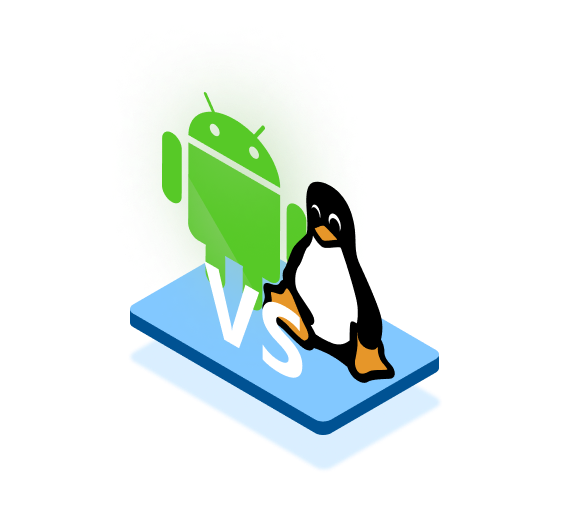
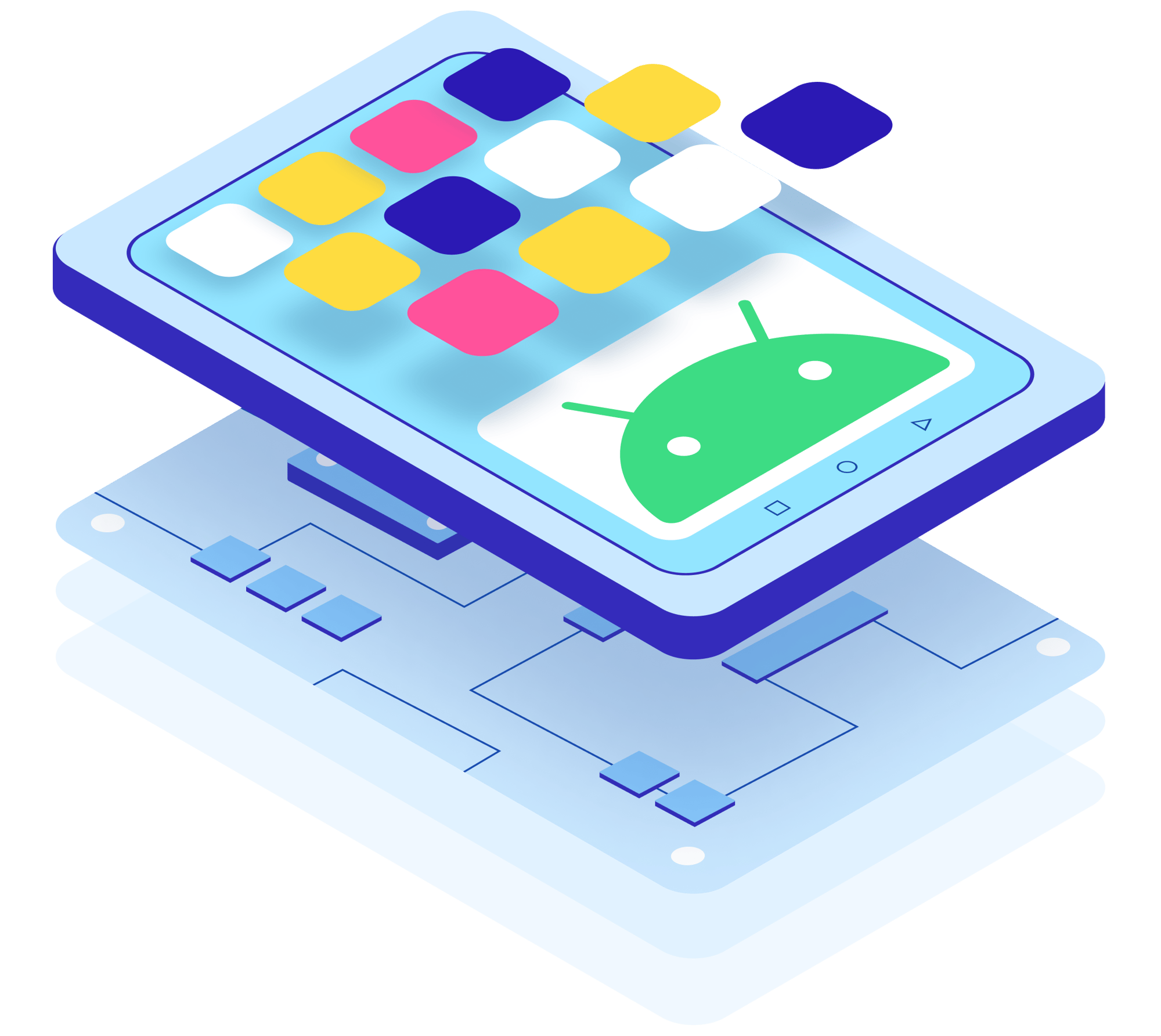
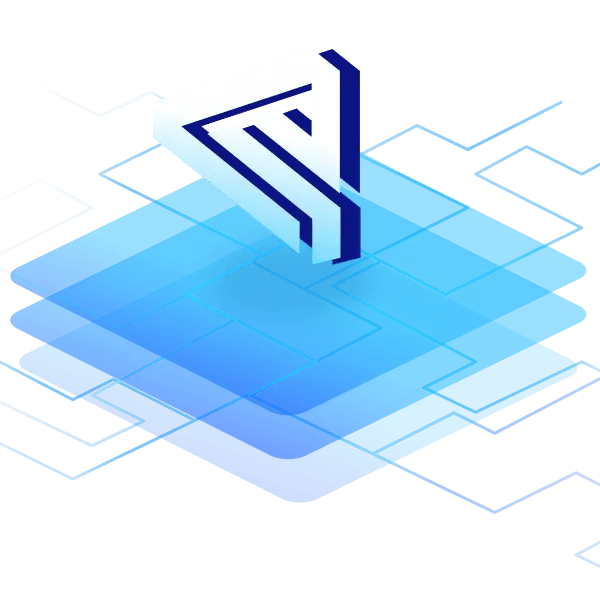
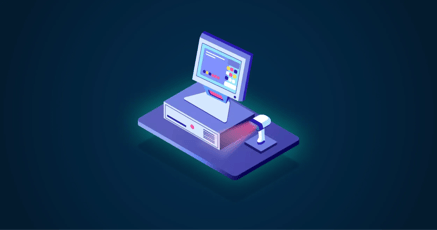
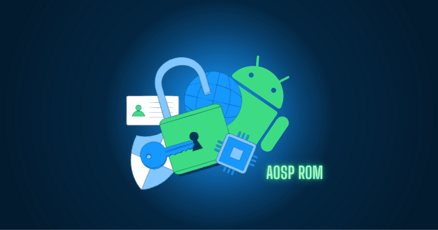
.png?height=230&name=blog-header(52).png)